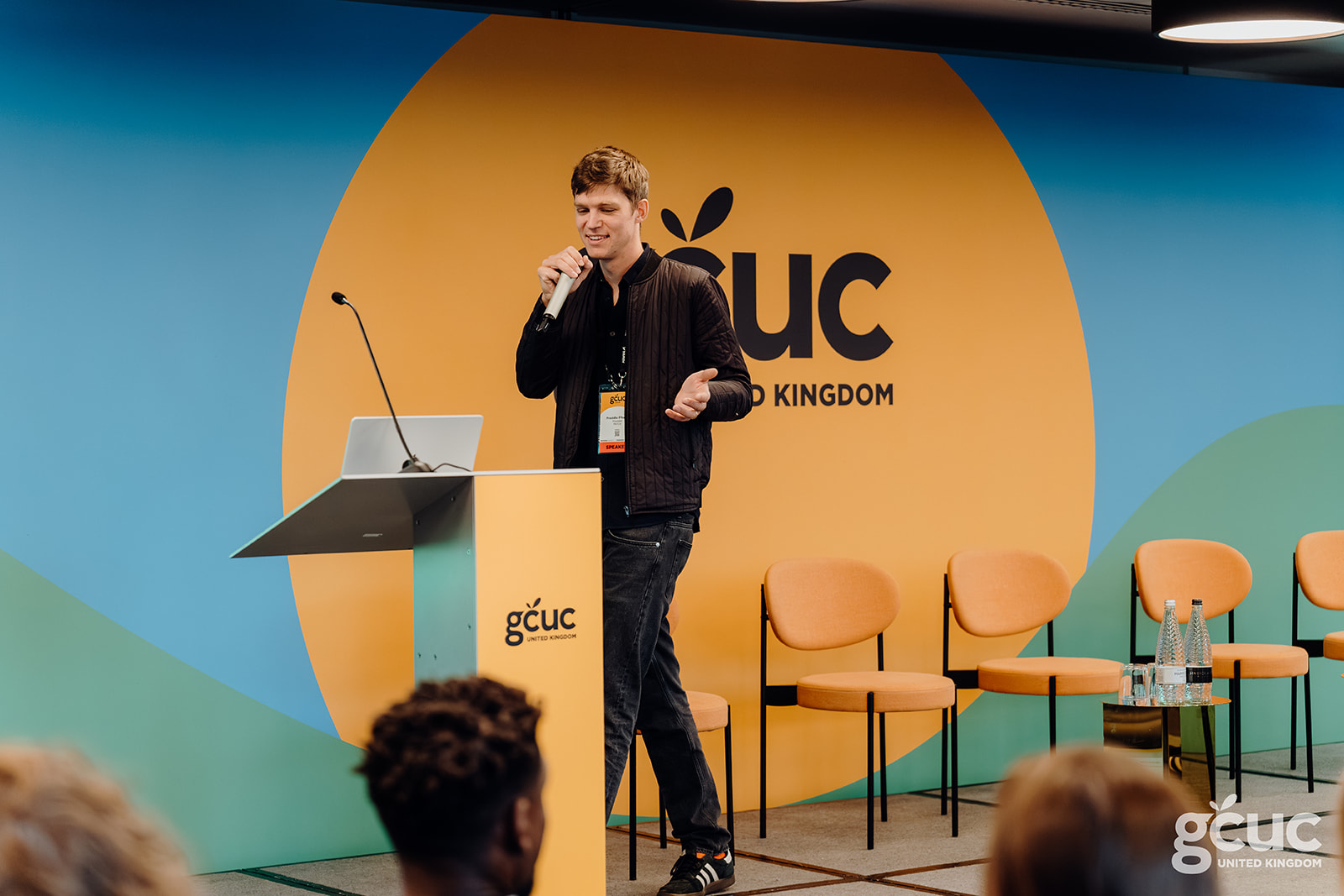
GCUC UK London 2024 brought the coworking community together to discuss key themes driving the industry forward. The day highlighted the importance of collaboration, addressed pricing challenges, underscored the need for investing in talent, and explored the potential of technological advancements, particularly in AI and data-driven decision-making. Operators shared their experiences and insights into how the coworking industry is evolving, with actionable takeaways to help businesses stay competitive and thrive in this ever-changing landscape.
Opening Remarks
We kicked off the day with heartfelt reflections on the importance of human connection in coworking. Freddie Fforde (Founder, Patch) set the tone as MC, sharing personal stories and encouraging vulnerability and honesty as key drivers of growth in the sector.
“What makes GCUC special is human connection, honesty, and vulnerability.” – Freddie Ffrode, PATCH
Emilie Lashmar (Director, GCUC UK) warmly welcomed attendees, reflecting on the evolution of the industry since GCUC Manchester, earlier this year, She emphasised collaboration, saying,
“Our industry thrives when we lift each other up and create spaces for collaboration to flourish.”– Emilie Lashmar, GCUC UK
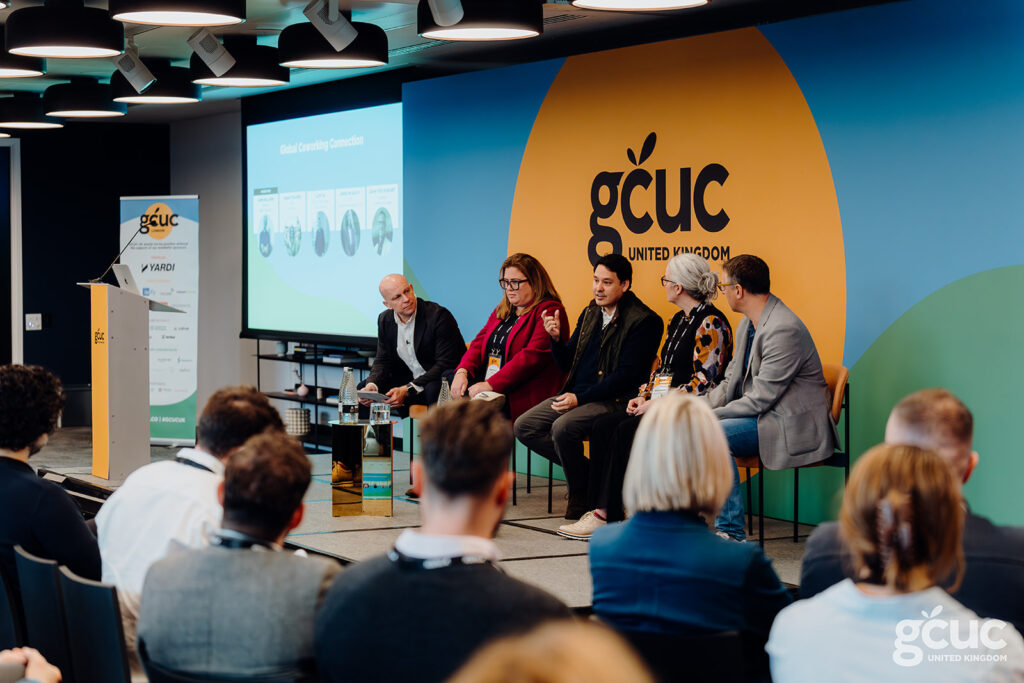
John Williams, Sarah Travers, Cliff Ho, Denise McGeachy, Jean-Yves Huwart
Global Coworking Connection: Pricing & Profitability Challenges
The global panel addressed the pricing challenges and profitability struggles across different regions. Sarah Travers (CEO, Workbar, Boston) discussed the impact of COVID-19 on pricing, noting that while office and suite pricing dropped, Workbar managed to increase coworking membership prices by leveraging regional density and unique layouts.
Cliff Ho (CEO/Co-Founder, The Commons, Melbourne) shared how Melbourne’s post-lockdown “flight to quality” has allowed better-invested spaces to maintain higher desk rates:
“In challenging times, investing in quality is what helps us bounce back stronger.”– Cliff Ho, The Commons
Meanwhile, Denise McGeachy (COO, Bracken Workspace Plus, Leeds) highlighted the 30% price difference between city centre and fringe locations in Leeds, where city centres are regaining demand while fringe areas are still struggling post-pandemic.
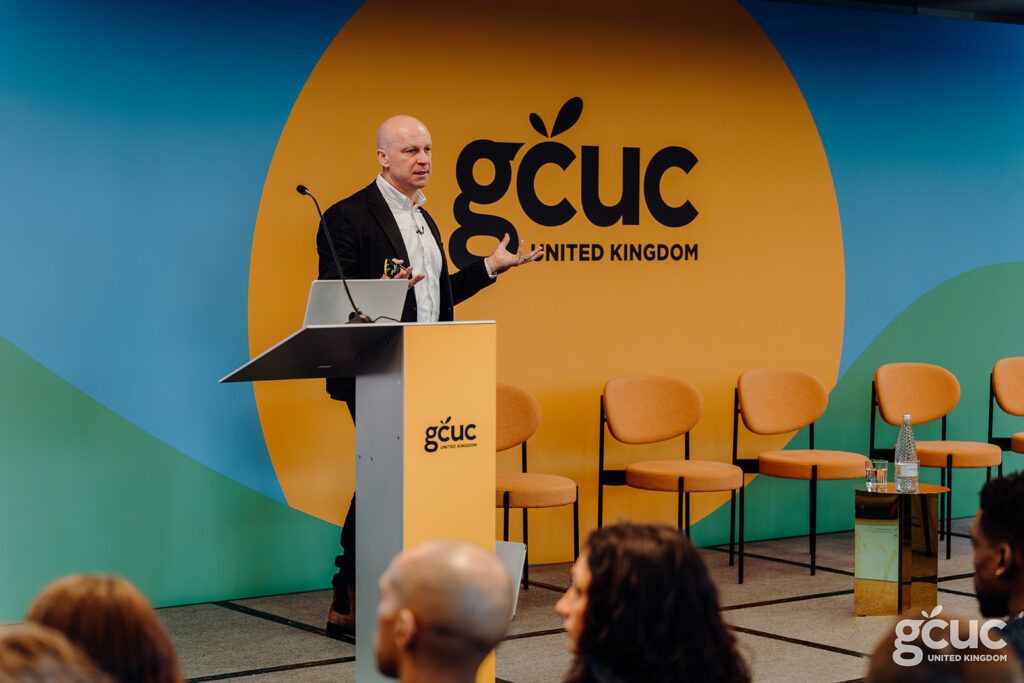
John Williams
Industry Data Unpacked
John Williams (Director, B&E Consulting) pointed out the cognitive dissonance between the industry’s optimism and data showing declining desk prices. He encouraged operators to focus on smarter pricing strategies and develop a shared vision to stabilise the sector.
“There’s a real cognitive dissonance between the industry’s optimism and the data showing declining desk prices and profitability.” – John Williams

Vanessa Belleau, Cameron MacRae, Sarah Hayford, Derek Lutz, Pauline Roussel
People as Your Competitive Edge: Investing in Talent
This session highlighted how talent investment is a key competitive advantage in coworking spaces. Vanessa Belleau (Founder & MD, High Fifteen LTD), brought the energy to this panel.
Cameron MacRae (Head of Flexible Workspace Recruitment, PMR Recruitment) discussed the benefits of hiring from other sectors like hospitality, which brings transferable skills and fresh perspectives. He stated:
“Bringing in people from other industries like hospitality can offer a fresh perspective and vital transferable skills.”
Sarah Hayford (Founder & CEO, The Land Collective) emphasised the importance of increasing industry visibility to younger, more diverse talent, saying:
“We need to make this industry more visible and accessible to young people—especially those from underrepresented communities.”
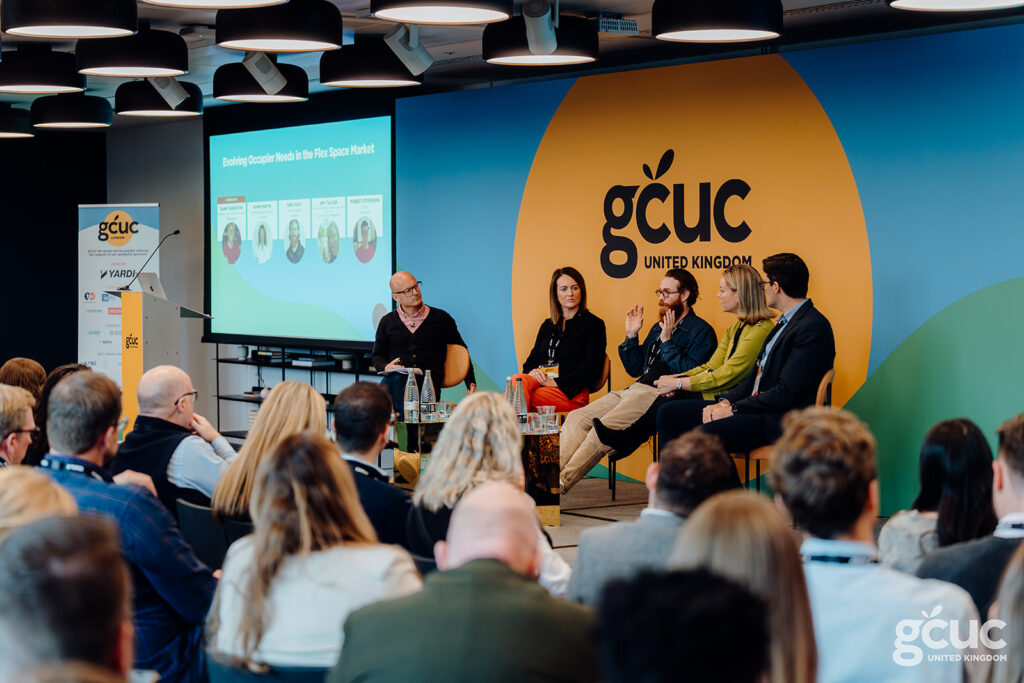
Danny Babington, Niamh Martin, Greg Miley, Amy Taylor, Rob Stevenson
Evolving Occupier Needs in the Flex Space Market: Bespoke Solutions and Hospitality at the Core
This panel focused on how occupier needs are evolving, requiring operators to be agile in their approach.
“It’s not just about having amenities; it’s about creating an experience that feels as welcoming and seamless as a hotel stay.” – Niamh Martin (MD, Convene)
Amy stressed the need for bespoke solutions and transparent pricing, reminding operators to move away from one-size-fits-all offerings:
“Operators need to provide tailored, transparent services that meet the evolving needs of clients.” – Amy Taylor (International Partner, Head of Flex Office Advisory at Cushman & Wakefield)
The session reinforced that to meet growing occupier complexity, hospitality and tailored solutions are essential for success.
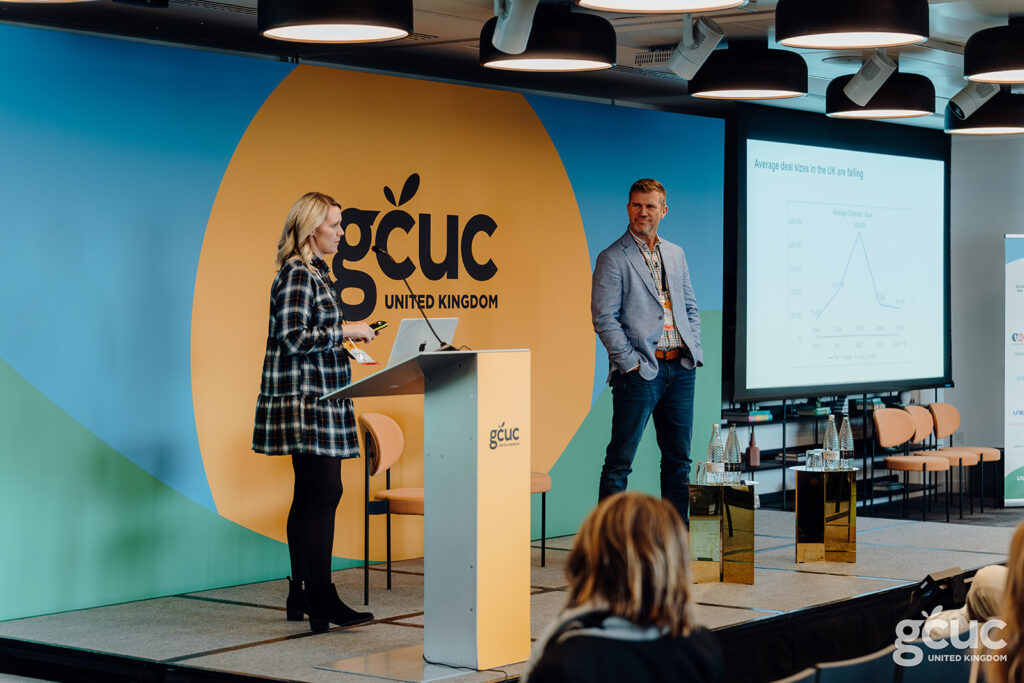
Abigail Ross-Groves, Ben Wright
Improving Lead Conversions
Ben Wright (Global Head of Partnerships, The Instant Group) and Abby Groves (Director, UK Operator Solutions) from The Instant Group discussed how despite rising demand, they’ve seen a drop in lead conversion rates. They attribute this to shifting occupier preferences and recent changes in their sales team structure. To combat this, Instant is making significant investments in technology, sales models, and strategic partnerships to improve lead qualification and conversion rates. They also stressed the importance of collaboration with operators to align sales efforts with occupier needs.
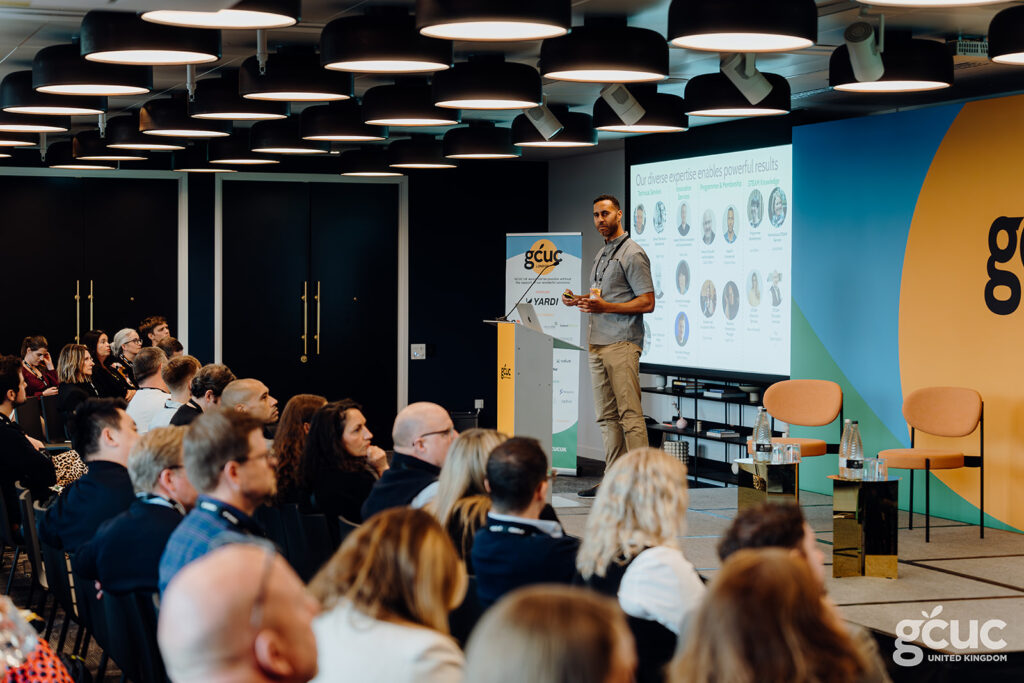
Clayton Shaw
More Than Just Workspace
Clayton Shaw (Head of STEAMhouse, Commercial) shared with the audience that STEAMhouse, operated by Birmingham City University, is more than just a coworking space—it’s an innovation hub dedicated to supporting the local business community and boosting regional innovation.
By working closely with universities, innovation centres, and industry partners, STEAMhouse provides not only workspace but also technical support and tailored programming to help businesses thrive. Their membership model focuses on delivering customised services and resources, ensuring members receive far more than just desk space.
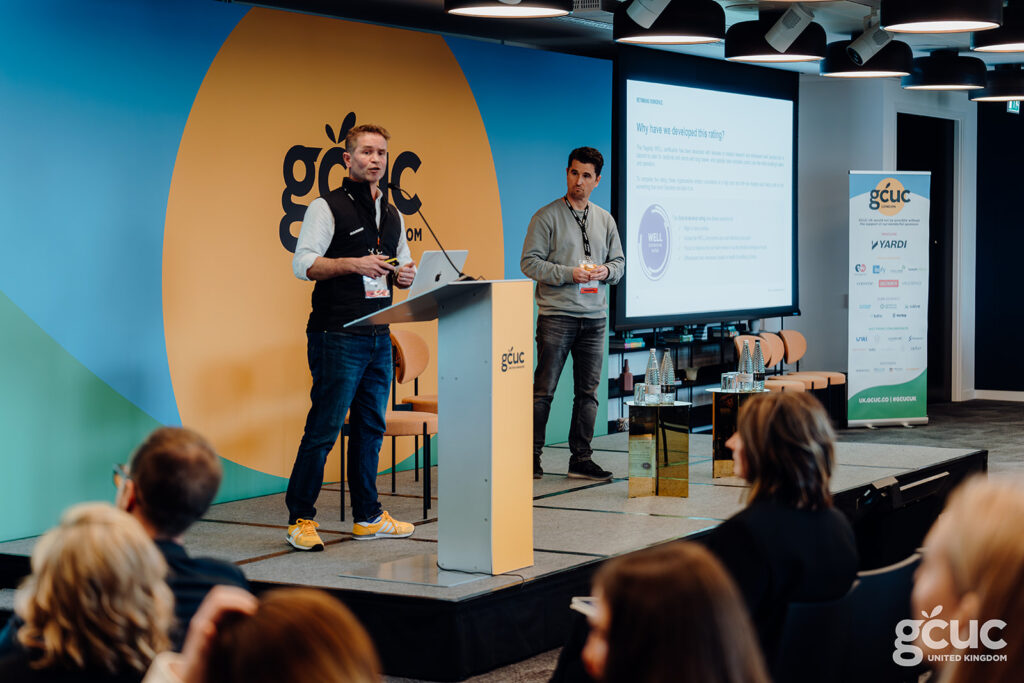
Sam Pickering, Rob Stewart
Well-being Certification for Coworking Spaces
Sam Pickering (Executive Director, The Instant Group) and Rob Stewart (Director of Strategy & Sustainability, Koba) shared exciting developments in well-being certifications tailored for the coworking sector. In partnership with the International WELL Building Institute (IWBI), they’ve created a well-being certification that’s specifically designed for flexible workspaces. The program is cost-effective and considers the unique needs of coworking operators, helping them differentiate their spaces with evidence-based well-being features that resonate with occupiers.

And that’s a wrap for the morning!
We’ll be posting our round-up of the afternoon sessions early next week, so stay tuned for more insights from GCUC UK 2024!
Photos: Ashley Lashmar Ford